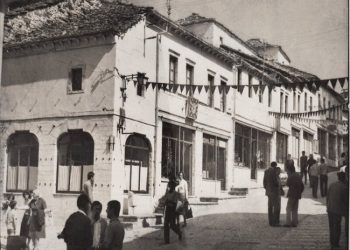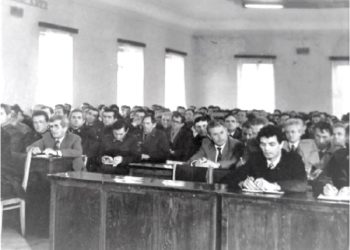By Nestor Topencharov
Part fifteen
THE DRAMA OF LIFE
(THE STORY OF A FAMILY)
I dedicate this book to: All fellow sufferers. Their families. And in particular, to people who did not have the opportunity to tell the odyssey of life, during the communist dictatorship.
FORE SAYING
Memorie.al / I were born in the city of Korça, on October 22, 1953. I left Albania in October 1990, after we were given the right to repatriate to Yugoslavia (now North Macedonia). In June 1992, I immigrated to Italy, where I still live today. Although I have been away for 32 years, I did not cut ties, as Albania was the country of my birth, where I spent 37 years, and that part of my blood is Albanian. Years later, the ties with Albania were strengthened, as I also took my wife from Durrës. We came every year on vacation, but the short time of our stay meant that many contacts were cut off. However, true friends and comrades remained forever in my heart.
In the last three years, I did not have the opportunity to visit Albania. But during 2022, I came several times. My commitment on the one hand and the coincidence on the other, made it possible for me to re-establish connections with friends and colleagues whom I had not seen for decades. Knowing my past, some of them advised me to write down what had happened in my life. At first, this idea seemed like a utopia to me, since even though I had been a good student; I had no inclination towards drafting. Then I reflected. I would just write my story, true events, where not much inspiration was needed. Perhaps a writer would know how to present these events, as a true pen artist knows. While I will write them, without many descriptions: briefly, simply, naked, as they happened.
Something else that pushed me even more to write this book was an interview on TV Klan, which I saw in October of this year, directed by the well-known journalist Blendi Fevziu. I did not seek revenge. But I didn’t even have justice. With the help of this book, I will make known to the Albanian public opinion, the role of the individuals who contributed to my suffering and that of my family. And today, I am putting my finger on these “beings”, not for the task they had, but for the way they performed it. I will start my writing with my grandfather, from my mother’s side, to continue with my father, where I will touch on the most important moments of their lives. This will help the reader to know my background.
Then I will also talk about myself. In this book I will also tell some events, one more dramatic than the other, that happened to people I had the honor of knowing. I am glad that many books have been published on the suffering and persecution of “enemies of the people” and their families in internment camps and prisons during the communist dictatorship. I was able to read some of these works. I believe that this book, in a modest way, will contribute to know even more the inhumane methods of the State Security, the way they created accusations and how they destroyed people and families to keep the people under terror.
Author
December, 2022
Continues from last issue
CHAPTER FOUR
One day, a zoo technician arrives, whom I knew from college, as she had graduated a few years before me and worked at this company. He informed me that one of their foremen in the calf sector would take maternity leave and I would be interested, as they needed it. One morning I went to the director. The company’s offices were not far from the sector. After he received me, I told him who I was and asked him that now that I had worked for two years in this company, he would give me the opportunity for this temporary position, which was being vacated.
In this way, I would also be put to the test, to see my ability. He listened to me attentively. He told me he would talk to the supervisor and report back next week. When I went on the appointed day, the demeanor of the principal was quite different. In an arrogant tone, he showed me the shovel. That for me only she was. At this moment I was surprised, as I did not expect such an answer.
– “I don’t understand”, – I told him.
And I continued:
– “Why do you have to speak in this ordinary language? I understand that the order is from someone else. But you could have found another way too. That it was not in your hand.
Then I added:
– “You should be sorry for the way you treated me”.
I made it clear to him that in that enterprise; I would not stay another minute. I could see his nervousness and walk behind the desk. I opened the door and ran away. Several times, months later, when I was going to work at the Artistic Enterprise, we would cross paths with this director. He had his house in that area. When he saw me he lowered his head.
At home, I told my mother about the conversation.
– “It’s good that you left, son. Let’s eat once a day, but don’t let them humiliate us”.
With these words, the mother supported the decision made. At that time, we were financially tight. I used to go to the neighborhood to look for work.
Their only response was:
– “Agriculture”!
I did not feel well when I came to that environment of vipers. At this time, many people who knew us wanted to help us find a more suitable job. There was only one solution.
“We had to change the neighborhood.”
We were ready to give away the private house, in exchange for an apartment for rent. For this exchange, a good man was needed. This man was found and his name was Behar Koçibelli. (He was so good that when democracy came, he started with photocopying, opened an activity and today in the center of the city; there is a high-class hotel that bears his name). He knew us as a family since his grandfather. Even his father had done him some honors at work.
After trying everything in his power and not succeeding, he gave up. He paid us a visit with his wife, Krisanthi, where he told us that there is a person in the neighborhood who wants to destroy our family. We knew this person, it was Vangjo Vangjeli, and now we had his plans clear once again. To add to our suffering, he wanted to keep us in that neighborhood, where he liked.
From April 1985, I went to the work office of the City Executive Committee. The clerk of that office was Sami Qazimi. I told him about my case and he promised to help me. I went back to the reception day and he proposed me for the turner at the Mechanical Plant. At that time, this profession was not preferred by young people. But it was fine for me.
According to the rule, he would send the worksheet to the neighborhood. At dinner I pulled it. It took me a few days to do the medical tests for work. In those days I talked with an acquaintance of mine, Thanas Skëndin, who was a mechanical engineer at this plant. He promised me that once I started the job, he would help me.
After receiving the health certificates, I presented myself to the chief of staff. When he saw my documents, he told me that they were not needed. On the day of the reception, I went to Sami, who called this boss about this rejection, which he also did not understand. After listening to her excuse, he swore that he would not send them anymore, not even a lathe. Then he informed Vezaf, his boss, who had the office of the District Executive Committee.
After a week, Sami informs me to collect the work sheet in the neighborhood, for the lathe in the Artistic Enterprise. Turn by turn, I had the analyzes ready and the next morning, I presented myself to the head of the company. He sent me to do the actions in the Military Branch. When I came back, he was not in the office. I was waiting in the hallway, looking at the stands hanging on the walls.
At this moment, a phone rings in one of the offices. Since the door was half open, the conversation of the speaker could be clearly heard, repeating for safety the words she heard:
– “For lathe? Of neighborhood 3? Don’t worry”!
I see that a woman, who I later found out was the director of the company, comes out quickly from this office. He went to the staff office and when he found the door closed, he turned to me.
He asked me: – “You are the one from neighborhood 3”?
When he got my confirmation, he ran down the stairs. I followed him and saw that in the yard of the enterprise, he met the chief of staff. After putting his arm in, he started walking around with it and something was telling him.
When he returned to the office, I noticed the boss, who did not know what excuse finding, not to do the recording. I knew it wasn’t her fault. I left the company and started running to Sami. As for running, I didn’t stand out, but I was convinced that if someone had timed me, I would have definitely broken the national record. I explained to Sami what had happened, connecting it to the previous case. He immediately called the boss, insisting that she register me, as it was also Vezafi’s order.
I thanked this honest and correct clerk and ran back. I arrived just as the boss was leaving, apparently due to pressure from the director. (I met this director under completely different circumstances, from the end of 1990, in the city of Struga, where I confirm what I told you above). The boss told me to come another day, but on the one hand, my insistence, and on the other, that she was a good person, made her come back and register me.
A friend of my father’s, who worked with the secretary of the neighborhood, who had given me the worksheet, sent by Sami, had told him the great insults he had received from Vangjo and Meri, where the mayor of the neighborhood had joined them.
Artistic lathes were different from normal lathes. There, to make the object, you had to tie yourself with a wide belt and carry a leather pillow on your stomach, on which the work tool rested. There we produced various copper and bronze objects, such as; vases, jezeves, kettles and samovars, discs and, up to the brazier. They were called plastic works. In no time I got the hang of the job and became one of the most skilled turners.
The work, although hard, I liked because it was an art that gave you the possibility of creativity. For good work and the production of new objects, I was rewarded materially several times. Many people, who also worked in other departments of the enterprise, came so that I could do some work for them, such as; lampshade rosette or; other decorative objects, for personal needs. I was clueless. At every moment, I tried to fulfill their request.
At home, since the time of the arrest, many works remained unfinished. One of the main ones, the house was without interior doors. Gaqo Peci’s daughter, Marjana, who worked as an economist in the city’s carpentry, helped me to buy the wood. A carpenter we knew did the work. A friend I had met in prison, with whom I hung out when we were “free”, did the electrical installation for me, the unfinished part. They call him Piro Naçe. I am grateful to him for his sincere company.
In May 1985, permission was given to the grandmother to repatriate. It had been several years since she had made the request and finally, at the age of 93, she returned to her place of birth, where she passed away at the beginning of July. Although I had been working in the artistic enterprise for two months, I was honored by the guild. They sent some representatives who attended the grandmother’s funeral.
In the years that followed, several leaders of the neighborhood changed. This made it possible for the sister to be given a better job in the shoe factory. It seemed like things were getting back to normal. Contacts with people also began to increase. When in the spring of 1988, my father’s depression returned, the doctor admitted him to the hospital. It lasted for a period of several weeks, until it began to improve, but on the other hand, it became difficult to breathe. Then after they visited him, they urgently transferred him to the sanatorium.
At that time, the director was Dr. Koruni bathtub. We knew each other through family, as Vaska was married to one of my mother’s cousins. At the moment, the sanatorium lacked oxygen. The country was in a very difficult economic period. There were shortages in all areas. The doctor didn’t leave a phone call until he found the oxygen cylinder in a company. He told me that the situation was critical, especially for that night. The father managed to pass this difficult moment of his health, without knowing about the new danger that was threatening him.
It had been a few days since he had returned home and the first day he had stood up. Ivana and I were at work. Mom was doing the morning chores, while dad was taking two steps in the backyard. There is a knock on the door and two young men dressed in suits are looking for the father. They are presented as persons who were sent by the minister, in connection with the request made by the father, for repatriation. Although the father repeated several times that he had not made any request, they insisted that he be ready and took him with them.
When I returned from work, I found out about the incident and we decided to wait, since any interest would be useless. The next day, I went to work. For those 24 hours, the father was kept in a room of the Hotel-Tourism. They asked him to admit that, together with the Vics (the last letters of the surnames of some immigrants), he was part of a group of agents that cooperated with Yugoslavia. And the father “would be forgiven”, since he had suffered before. Although weak physically and mentally, the father resisted the pressure and violence they exerted on him. Blue marks were made on his hands and neck. They released him, told him to think and escorted him home.
When he came out, his mother waited for him. One of them accused him of our lack of interest and indifference towards our father. The mother replied that; she didn’t have to worry, as her husband was in safe hands. They understood the irony, but had nothing to add and left. The father, after telling everything to the mother, asked to lie down on the bed, where he fell asleep. In the afternoon, when I returned from work, my mother and sister thought about what to do about this great evil that was swirling around us.
I had thought that after the death of Enver, the dictatorship had softened. I had also thought that, after they had allowed us to repatriate my grandmother, they would no longer deal with us. But the dictatorship had not changed. One dictator was replaced by another. They targeted our family. Apparently, what they had caused us until then was not enough. Security continued at a pace of, programming false and diabolical processes.
We knew that if you were in their plans, they would see it through to the end. I thought about going to the district attorney, to report the situation, before the Security prepared the plan. But mother and sister did not agree. Past experience showed that my interest in seeking the right to my father led me to prison. In the end, we found it more reasonable to let Ivana go. Being female, it would be less dangerous. I didn’t know if this action would end the problem, but I was sure that it would cause a strong shock in these organs of the dictatorship.
The next day, Ivana filed a report at the Prosecutor’s Office, and then went to work. After a few hours, they informed him that they were looking for him at the gate of the company. There, “Gaz” was waiting for him, who took him to the office of the head of the branch. He had become very nervous, that this plan had reached the ears of the Prosecutor’s Office, ahead of time. He started shouting at Ivana, for the denunciation she had made at the Prosecutor’s Office.
He was interested to know if there had been anyone else in the prosecutor’s office, and if I had any knowledge of the matter. After Ivana assured him that the prosecutor was alone and that neither I nor my mother knew anything, since the father had only talked with him, the mayor calmed down. Then he told her that these investigations were done by order from above, and that she should keep this a secret.
After a few days, those two boys came again and when they found out that the father was no longer able to get out of bed, they limited themselves by saying that they would send the doctor. That afternoon, the neurologist appeared, who, after visiting the father, diagnosed his serious condition. When he saw the mother’s despair, he calmed her down by telling her that the husband would not be disturbed. I am grateful to this doctor for the humanity he showed to my parents. Memorie.al
The next issue follows




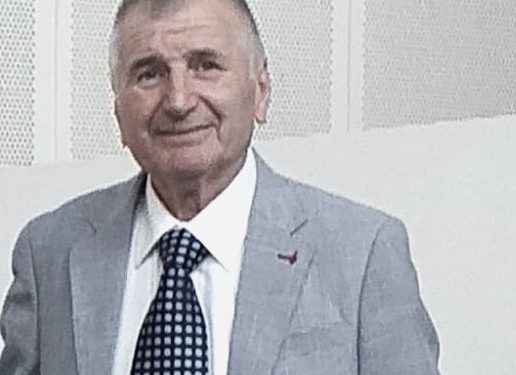
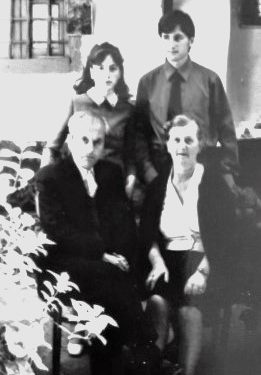
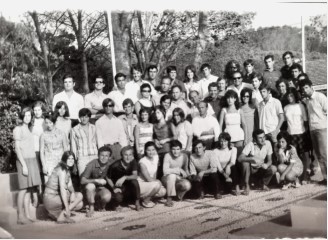
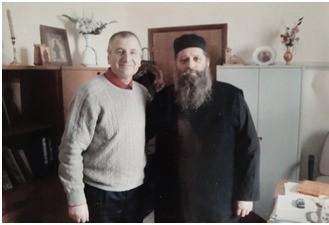
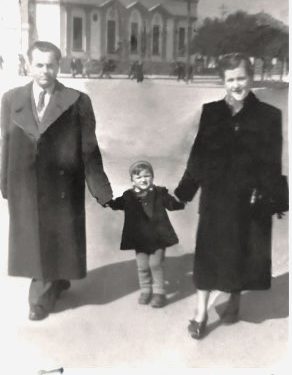
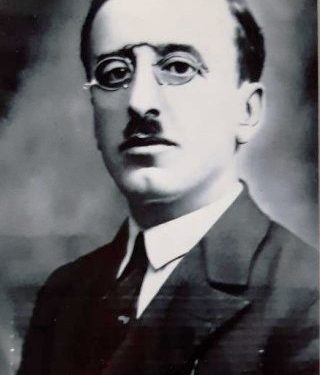
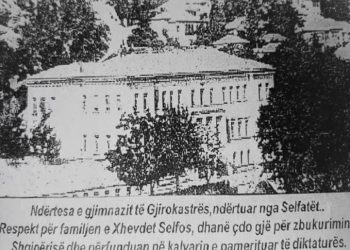
![“When the camp commander, in the presence of the group accompanying him, said to the convicted journalist: ‘Why did you exchange this beautiful profession for the Spaç wagon [mine cart/labor], he [the journalist]…”/ The unknown story of January 10, 1983](https://memorie.al/wp-content/uploads/2025/10/Spaç_Prison_Mirditë_Albania_–_Buildings_2018_08-350x250.jpg)

